Dan Boyne
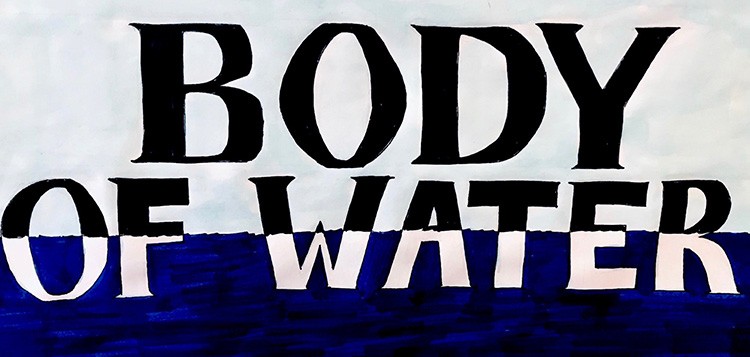
"BIG ED" MASTERSON shoved off from the Cambridge Boat Club dock and just sat there for a second, gazing at the sky and the still waters of the Charles. It was going to be a perfect day, one of those rare October mornings when there was a slight chill in the air, soon remedied by several minutes of hard rowing. He took a few strokes, first with his arms and back, and then with the accompaniment of his sizeable legs. He loved sculling, because it utilized every piece of his 6' 5" body, which sometimes seemed awkward and clumsy on dry land, but never so on water.
He'd barely made it to the Eliot Bridge when he heard the unmistakable "thunk" of something hitting the bow of his King wooden single. He stopped abruptly and gazed down into the dark water. It was barely dawn, the day after the Head of the Charles regatta, and there was a lot of flotsam and jetsam strewn about the surface of the water from weekend revelers - spectators who lined the banks of the river to watch the endless parade of boats go by. It took his fifty-five-year old, sun-stricken eyes a few moments to finally spot the blue Igloo cooler. He swore briefly as he fished it out of the water and then heaved it toward the Cambridge shore with one arm, where it landed with a dull thud in front of the VFW post, just upstream of the bridge. Then he wiped his hands on his cotton t-shirt, and started rowing again.
Rowing was his primary obsession in life, and anything that interfered with his daily rendezvous with the river angered him, perhaps more than it should have. In Masterson's mind, a full minute of water time had already been wasted, but more than that - one piece of trash meant that there was probably going to be more. Suddenly, his sacred morning row had been defiled, and he had to catch himself from descending into a bad mood. Shake it off, he told himself, gripping his oars tighter. A hard row could still fix everything. But if anything or anyone else got in his way, he would swear at them too - man, woman, or child. He didn't care, although he should have, perhaps, for he had coached at Harvard long enough that his name was forever connected to that institution, even though he was no longer working there.
Several more strokes past the Eliot Bridge he spun his boat around and headed downstream, toward the starting line of the world-famous regatta. He'd decided to do a practice piece for time over the 3.1 mile course, just to see if he could better the time he’d done two days ago, when another competitor had cut him off during the race. Pulling hard on port, he cranked himself around the sharp turn, hugging the Boston shore, where he spotted a few summer drifters sleeping along the wooded bank. Soon it would be too cold for them to stay outdoors, sleeping bags or not. Briefly, he wondered where they might go - Florida, perhaps, or maybe Mexico. In his youth, Masterson had favored a more nomadic lifestyle, and a part of him still missed it, settled now in Boston with the Charles River as his only connection to nature.
Passing by Newell, the Harvard University men's boathouse, he felt the sun settle onto his back, keeping his sweat from cooling, and noticed a couple of freshman crews putting their boats in the water.
"Bastards," he muttered, under his breath.
A few years ago, it been his job to coach the Harvard fourth and fifth boat heavyweight crews, under the watchful eye of head coach Bill Burkholt. Burkholt had finally let him go, after several seasons of mixed results, culminating in an altercation with an obnoxious coxswain named Finley Sparks, who’d gone on to graduate and then make millions from a video game app. He didn't care to think about that experience right now, so he picked up his pace and passed skillfully under Anderson Bridge, trying to row away from the view and all the memories associated with it. He didn't really blame anyone but himself, actually; but the problem with rowing, he mused, passing under the dark arch of the bridge, is that you always looked backwards - and you always regretted the bad strokes you had taken.
Because of his dismissal at Harvard, Masterson had initially been denied membership from every private rowing club on the river, even CRI, the community boating facility which was supposedly open to all. For awhile he just kept his boat on top of his pickup truck, and drove up to Watertown every morning to launch from the public dock there. Pissed off, he had a t-shirt printed up by a friend of his in Harvard Square that said SYRC with crossed oars on the front and "Screw You Rowing Club" on the back. He still wore the t-shirt, even after a few of his buddies finally got him into CBC, vouching for his character and denying the rumors that he was an irascible cuss from Philly who couldn't keep his mouth shut whenever he got mad.
In figure and form, he looked a little like Jack Kelly Sr., the famous Philadelphia sculler whose bronze statue still guarded the banks of the Schuylkill River. He had overly long legs and arms, a decent physique, and a devilish way of toying with his rivals. The latter technique he had learned from Burkholt, his former boss, who always got even if someone beat him. Out on the river, this trait played out in various ways. Masterson would often slow down if another sculler was trailing him, letting the man or woman catch up a bit and even start to pass him; then he would take ten hard strokes and slip away. He would then slow down again, giving the other sculler false encouragement, and the cat and mouse game would be repeated for as long as possible. Older scullers on the Charles knew enough not to get caught up in it, but there were plenty of young ones still left to torture, scattered about the Charles River like bits of trash.
A tin can hit his bow and he swore again.
++++++++
Masterson took ten hard strokes and then ten easy; then twenty on and twenty off. The heart-rate monitor that was cinched around his chest beeped rapidly and then settled down again, as he went through this cyclical warm up. It steadily tracked higher with the longer duration of hard strokes - 150, 160, 170, 180. He kept a watchful eye on it; he had to be careful.
Last spring, he'd had a big scare out on the river, when his heart suddenly started racing out of control, upwards of 220 beats a minute. He stopped rowing, shaken, and then spent several minutes in a fetal position, trying not to capsize, as he hunched over his oars and let his boat float downstream. He had no idea what was happening, but it felt like a panic attack. When his heart rate finally settled down, he paddled home, pale-faced and shaken, and then sat on the dock for several minutes. Then he chatted with a few of his rowing buddies at the club to try and figure out what had gone wrong.
A few days later he was navigating his way through a maze of corridors and elevators at Mass. General Hospital, trying to locate the sports cardiology office. When he finally found it, arriving ten minutes late, an impatient young tech named Donald quickly ushered him into a small white room filled with buzzing machinery. He was instructed to strip from the waist up, then he stood still as his chest was plastered with electrodes. Donald then placed a clamp over his nose, and fit a clumsy respirator over his mouth. Masterson sat patiently through all of these ministrations, and then sat on a rowing machine and watched as another tech calibrated the monitoring screen. The contraption would apparently provide heart rate, breath volume, and blood pressure data. As he sat there, waiting for the go ahead to begin rowing, Masterson suddenly realized that Donald looked remarkably similar to Finley Sparks, who’d once quipped "my dad can probably buy you out of a job." Masterson had laughed at the arrogant boy at the time, but now the joke was on him.
After the ten-minute ergometer piece, which left Masterson lacquered in sweat, the respirator and nose clamp were promptly removed. The second tech also pulled the electrodes off of his chest and told him he could put his shirt back on. Then Donald abruptly left the room, followed by his assistant, as if sensing that Masterson didn't really care for him, or appreciate his skill set, all of which was true. Several minutes passed and there was still no sign of the cardiologist. Masterson was chilled from the air-conditioned room, and he found the loud hum of machinery and the long wait slightly unnerving. He was used to doing pieces competitively, and all he really cared about was whether he had beaten any of the other patients who had tested before him. Donald could have at least revealed that, making himself useful. Finally, he got up and paced the room. On the walls, signed photographs of various sports celebrities were prominently displayed - ice hockey players from the Boston Bruins, a few Olympic runners, and even a soccer player he hadn't heard of before. Just as he was about to leave the room and sneak out of the hospital, the cardiologist came in, introducing himself as Dr. Hamish.
"So, to cut to the chase, Edward, you have atrial fib," he said calmly. "It's not uncommon among elite oarsmen still rowing competitively into their forties and fifties."
"Well that's reassuring," Masterson laughed. "Good to know I'm among the elite."
"See these HR spikes," Hamish said, smiling politely and pointing to a paper printout of his chart.
Masterson nodded. He didn't know what the hell he was looking at, actually.
"Most people show a steady rise in HR and BP, while yours is spikey."
Spikey, he thought. Was that actually a medical term?
"So what do I do about it?" he asked, trying to remain calm.
"There are essentially two options," Hamish said. "You can try to control it with medication. Or we can try an ablation."
"An ablation?" he said, raising his eyebrows. "Sounds like a Catholic rite."
Hamish laughed amiably. "Slightly different. We essentially try to cauterize the cardiac tissue that is sending false information to your heart, so it won't randomly start to race out of control."
"That's a bit barbaric," Masterson observed. Some of the guys at CBC had mentioned this procedure to him, though, so he was already aware of this radical option.
"I'll send you some information to look over; then we can talk again."
Masterson nodded, suddenly growing angered by the doctor's casual, conspiratorial air.
"Have you ever been hooked up to this machine, Doc?"
The cardiologist smiled and shook his head.
"Really?" he said, lifting his eyebrows. "Why not?"
Hamish shrugged. "I don't really want to know my pathetic level of fitness, I guess."
Masterson nodded, then pressed the younger man further. "Just out of curiosity - when was the last time you went to a doctor?"
Hamish grinned again, as he made his way out the door.
"Oh I don't go to doctors anymore," he said.
*****************
After his visit to Mass. General, Masterson did some research, and simply upped his intake of potassium, which seemed to keep his racing heart in check. Still, he was a bit more careful now, out on the river. Several years earlier, there had been an older sculler at the Cambridge Boat Club who'd blacked out during a race while pushing himself too hard. The 70-year-old had capsized and drowned. Several CBC members had gone to the funeral and spoken during the eulogy, trying to honor their rowing comrades' passing by offering up the fact that he had "died with his boots on." But the family didn't buy this rowing hoo-haw, and neither did Masterson. He never wanted to go out that way.
Just before the Western Ave bridge, he stopped briefly to adjust the rearview mirror clipped to his cap. Then he looked over at the old electric power plant building that had once been occupied by the Ford Motor company. The ghosted logo was still visible on its outer brick facade. On some mornings now, his 55-year-old body felt like an old pickup truck - still strong but suffering from a creaky and loose suspension. Come to think of it, his transmission wasn't all that great either. His hips and shoulders often protested when he got out of bed in the morning, and he was aware of the less than smooth running of his thoughts. Sometimes his memory seemed to skip over or lose track completely of a few essential pieces that connected a train of thought, turning it into a more abstract, dreamlike jumble. Being a rower, he preferred to think of his mind as now as simply being more fluid, rather than "janky," a word his friend Charlie Marks, the boatman at Harvard, used to describe machinery that didn't work so well.
But he could still row.
He started up again, trying to beat the Riverside scullers who were just launching down to the starting line of the race course, before they dispersed onto the river, like a bunch of mosquitos. They were mostly a younger bunch of athletes, with a few exceptions, and he didn't want to tangle with them today. He definitely didn't want to bump into Anne Billings, an older female sculler he'd recently gone on a date with and then hadn't yet called back. As he rowed past Riverside Boat Club, he suddenly spotted her on the dock, waving to him hysterically, and shouting "yoo-hoo!" He picked up his pace and pretended not to notice her, knowing that later he could always blame it on his bad eyesight.
Under the BU bridge he took twenty more hard strokes at race pace, as a final bit of warm up. Then he spun himself around, took off his extra shirt, and set the timer at his feet to zero. Without ceremony, he launched into the 3-mile piece.
When Masterson rowed hard, or raced, he didn't think about anything - other than keeping the boat balanced and moving constantly. He could feel when things were going well, and he didn't need any electronic gadgets to tell him so. Younger scullers were addicted to technology, but Masterson had learned the old way, as a kid, from the old guard scullers in Philly, who watched the rise and fall of the stern, the run of the boat, and the spacing between the puddles. Their voices were now permanently embedded in his brain. It wasn't the numbers on the stroke coach that inspired you, after all.
As he passed Riverside again, heading upstream now, he could sense the younger scullers watching him, measuring his speed and power in their minds. Everyone on the river was a competitive son-of-bitch, whether they admitted it or not. He was going well now, at thirty strokes a minute, and he'd just gone through the first mile marker in 6:25, when the bow of his King hit something big, nearly causing him to capsize.
"God damn it!!" he shouted. and instinctively slammed his oars down to the water. Just behind him he spotted the offending object - an oddly shaped log that slowly bobbed back up to the surface. There was something weird about the way it moved, rolling over like a lazy crocodile. Suddenly he knew why, and started rowing away from it like a total madman.
He hit 34 strokes per minute, then 35. Full of adrenaline and raw fear, he continued at that pace, all the way to the end of the course. Only once more did he have to alter his course, passing a slower sculler who was out for a pleasure row.
"Open your eyes!" he shouted angrily.
At the finish line he stopped, abruptly and collapsed over his oars. For awhile he just sat there, frozen, as he had last spring when his heart had started racing out of control. Unbelievable, he thought. It couldn't be. He looked at his stroke watch, which showed 19:30 - his fastest time to date. Well, that was interesting at least, he thought to himself, trying to focus on something else. Shake it off, he told himself again. It's not possible. But suddenly he could no longer control his body, and he promptly leaned over the gunnels and threw up. Afterwards, he gazed down into the water again, looking at his own puzzled reflection for a moment and then remembering the face that he'd seen moments ago, looking up at him from just below the surface. Although the body had already began to decompose, there was no mistaking its identify.
It was the ex-Harvard coxswain, Finley Sparks.
If you enjoy and rely on row2k, we need your help to be able to keep doing all this. Though row2k sometimes looks like a big, outside-funded operation, it mainly runs on enthusiasm and grit. Help us keep it coming, thank you! Learn more.
Comments | Log in to comment |
- Bont Rowing
- Calm Waters Rowing
- Concept 2
- Craftsbury Sculling
- The Crew Classic
- CrewLAB
- Croker
- Dad Vail Regatta
- Durham Boat Co.
- Empacher
- Faster Masters
- Filippi
- Fluidesign
- h2row.net
- HUDSON
- Live2Row Studios
- Nielsen-Kellerman
- Oak Ridge RA
- Peinert Boat Works
- Pocock Racing Shells
- Race1 USA
- Rockland Rowing Masters Regatta
- RowKraft
- Rubini Jewelers
- Vespoli USA
- WinTech Racing
- Bont Rowing
- Calm Waters Rowing
- Concept 2
- Craftsbury Sculling
- The Crew Classic
- CrewLAB
- Croker
- Dad Vail Regatta
- Durham Boat Co.
- Empacher
- Faster Masters
- Filippi
- Fluidesign
- h2row.net
- HUDSON
- Live2Row Studios
- Nielsen-Kellerman
- Oak Ridge RA
- Peinert Boat Works
- Pocock Racing Shells
- Race1 USA
- Rockland Rowing Masters Regatta
- RowKraft
- Rubini Jewelers
- Vespoli USA
- WinTech Racing



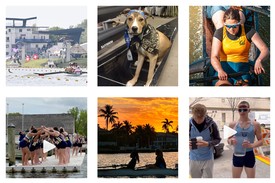
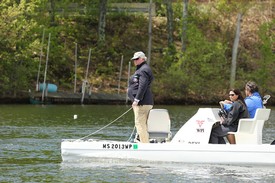
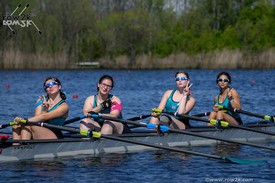
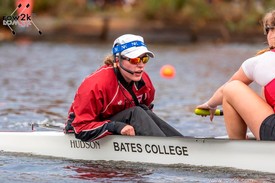










11/20/2019 1:44:36 PM
11/13/2019 12:46:39 PM
11/11/2019 6:50:12 PM
11/06/2019 5:11:04 PM
11/05/2019 12:53:58 PM